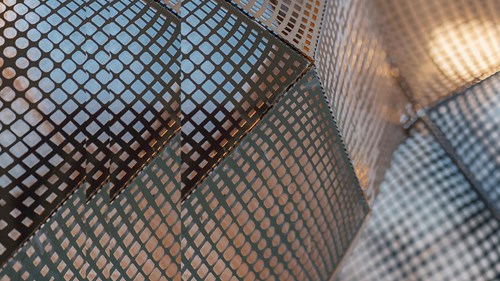Review and outlook – Recent developments in Romanian competition law
The Romanian Competition law as well as the regulations regarding unfair competition and commercial practices in Romania have undergone a series of significant changes and updates over the past years, aiming to create a new, more efficient and modern legal framework. The role and powers of the Competition Council have been strengthened, whereas its monitoring and sanctioning activities are becoming more and more visible on the Romanian market. This article summarizes the most important amendments which took place in Romania in 2015 and gives a brief outlook at what can be expected to happen next in 2016.
Amendments in the field of unfair competition and commercial practices
The recent amendments, entered into force as of end of May 2015, are deemed to have completed the complex modernization process of the main piece of legislation regulating this field. To this end, the Romanian Competition Council issued its first guidelines on actions and procedures against unfair competition practices in view of establishing and developing a normal competitive environment.
The rule of thumb when dealing with unfair competition matter remains the civil liability that might be triggered by an infringement of the provisions set forth by Law No. 11/1991. In this regard, any person which proves a legitimate interest may address a damage claim directly to the competent courts of law, without being necessary or mandatory the fulfilment of the procedures in front of the Competition Council. This is mainly due to the fact that civil liability generally entails individual rights and interests, whereas the Competition Council competency regards rather a public interest and infringements that might have an impact on the overall economic environment of the market.
The criteria that the Competition Council needs to observe when evaluating a claim brought for its assessment are set forth very clearly (i) the degree of social danger, (ii) the circumstances in which the relevant infringement has occurred and (iii) the significance of the economic sector where the unfair competition practice has taken place (e.g. relevant market, number of involved undertakings and duration of the infringement).
For a rational and efficient allocation of resources, the Competition Council has the possibility conferred by law to prioritize the claims submitted for its review based on the potential impact on effective competition, the general interest of consumers or the strategic importance of the respective economic sector. Thus, the Competition Council is expected to pay special attention to claims regarding unfair competition practices with potential material adverse effects on the market.
Besides the payment of fines (i.e. 5,000-50,000 Romanian Leu (approx. 1,100-11,000 Euros) for legal entities and 5,000-10,000 Romanian Leu (approx. 1,100-2,250 Euros) for natural persons) and the obligation to cease the unfair competition practice, the involved undertaking faces also a high reputational risk, as the final decision taken in this respect by the Competition Council needs to be published on the website of the authority and in a largely spread newspaper. Moreover, final decisions of the competition authority are irrefutable proofs of the infringement during follow-on actions in court. Thus, payment of fines does not preclude or exonerate the liability in tort of the sanctioned undertaking.
Against this background, companies are encouraged to have a closer look at their commercial practices and related behaviour towards other participants on the market and avoid any actions that might denigrate competitors, divert their clientele, imply the use of trade secrets or any other commercial actions that are contrary to fair practice and the general principle of good faith in business.
Amendments and supplements to Competition Law No. 21/1996
On 30 June 2015, the Romanian Government approved, by means of the Emergency Ordinance No. 31, the Competition Council’s draft amending and supplementing Competition Law No. 21/1996 (“Law”), however with additional changes in comparison with the version proposed by the Competition Council. The major changes are, inter alia, as follows:
- Matching wording of Articles 5 and 6 of the law with articles 101 and 102 TFEU
The exemplificative enumeration of infringements under Art. 5 (1) (anticompetitive agreements and concerted practices) and respectively Art. 6 (1) (abuse of dominant position) of the Law has been narrowed, by eliminating last two letters of each articles (letters exceeding the current wording of Art. 101 and 102 TFEU). As of 30 June 2015, any on-going investigations grounded on the aforementioned letters shall be deemed to have been initiated on the basis of the general provisions set forth by Art. 5 (1) and respectively Art. 6 (1) of the Law. Since the aforementioned articles do not comprise exhaustive cases of anticompetitive / abuse of dominance practices, but mere examples, the anticompetitive behaviours formerly regulated by the points removed will still be forbidden.
- Sector inquiries outcome
Following sector inquiries conducted by the Competition Council, the authority may identify certain market dysfunctions affecting the competition process. Should this be the case, the competition authority shall take, within the shortest time possible, necessary measures aiming to create effective competition, by (i) issuing recommendations towards the business environment, public authorities or consumers, in order to facilitate market and competition development, (ii) promoting specific regulations, if it has ascertained that market dysfunctionalities have been triggered by pieces of legislation in force, (iii) imposing, by means of decisions, necessary, adequate and proportional measures in order to restore market dysfunctionalities.
The element of novelty brought by the Emergency Ordinance No. 31/30 June 2015 is a subsequent article regulating the right of defence of the undertakings towards which such measures are imposed. Besides the fact that any envisaged measure must be prior submitted for public debate, the involved undertakings are granted the right of access to the Competition Council file, may submit statements of objections and ask for oral hearings.
The Competition Council prerogatives are extended herewith, as the competition authority may issue particular decisions aiming individual entities without formally opening an investigation against that company, but merely as a result of a sector inquiry.
- Settlement Procedures
The investigated undertakings may use such procedure even before the Competition Council makes its allegations public through the issuance of the final investigation report, in order to obtain a reduction of fines (10%-30%). The cumulative conditions to conclude a settlement with the competition authority are (i) to express an unequivoque admission of guilt, and (ii) to issue a statement of acceptance of the maximum quantum of the fine, as set forth by the competition authority. The simplified procedure in case of settlement shall be further regulated and detailed in guidelines to be issued by the Competition Council.
- Statute of Limitation
The right of the Competition Council to apply fines for breach of competition regulations starts on the date of the offence. In the case of continued or repeated violation, the limitation period starts on the date of the last anticompetitive deed or act in question.
Besides the former cases currently regulated by Law that interrupt the limitation period, i.e. requests of information, in writing, and order of the President of the Competition Council to commence an investigation, the new wording of Art. 62 stipulates additional circumstances that circumvent the legal timeframe, namely conduct of dawn-raids and communication of the investigation report. Moreover, the limitation period is suspended during appeal procedures in connection with the Competition Council decision.
- Turnover thresholds for merger control proceedings
The Competition Council is granted the prerogative of amending the relevant thresholds applied to transactions considered economic concentrations and subject to the Competition Council clearance, by means of an order issued by the President of the authority, after obtaining the approval of the Ministry of Economy. Such order shall enter into force six months after its publication with the Official Gazette.
Internal revisions of such thresholds may be expected in the near future, in the sense of increasing the relevant thresholds, based on Competition Council decision in this regard.
- Right of access of the undertakings involved to the competition council file
In addition to the right of the involved undertakings to the file of the Competition Council documenting the investigation, the new wording of Art. 43 sets forth that the right of access to confidential documents, data and information is generally granted only once, after the issuance of the investigation report. Only in case new elements arise during the investigation, the involved undertakings may be granted a second access to confidential documents, data and information part of the Competition Council investigation file. This provision may be argued in the sense that a new access will be allowed only to new documents/information, and not to the same data or documents demanded via the first request of access to the file.
- What proposed amendments have been rejected?
The most relevant provisions proposed by the project, but not embraced by the Emergency Ordinance No. 31 are:
• Single Economic Unit concept, parental liability and attribution of liability and aggravating circumstances in case of recidivism (other breaches sanctioned by national competition authorities of other Member States or the European Commission), are not comprised within the wording of the Emergency Ordinance.
• Merger control authorization fees remain to be paid to the State Budget and not, as proposed by the Competition Council, to the competition authority.
• No changes as regards the involvement of police during dawn-raid procedures. The Competition Council may ask police officers to join its inspectors during dawn-raid procedures, only if an opposition to the inspection may occur.
Outlook – What’s next in 2016?
Following the legislative reform implemented this year, 2016 is expected to be more stable and predictable in terms of legal framework.
The Competition Council is expected to keep a close eye on competition developments in key sectors, whereas such sectors are yet to be determined. This year’s focus was on banking, motor insurance, food retail and electricity market – key industries thoroughly scrutinized by the Competition Council for the past 4 years. Now, new markets are likely to be in the spotlight.
The Competition Council further aims to enhance the activity of its specialized Cartel Department, a priority for the national competition authority as well as for the European Competition Network.
Moreover, the pilot project “Monitor of Consumer Goods Prices”designed by the Competition Council and the National Consumer Protection Authority in cooperation with major food retail chains in Romania shall go live at the beginning of next year, initially only for Bucharest area and afterwards expected to be extended at national level. This online platform is aiming to help consumers to compare prices and find stores where they can buy basic food basket at lowest prices and, on the other hand, to inform consumers on the price decrease due to increased competition between stores.
Well
informed
Subscribe to our newsletter now to stay up to date on the latest developments.
Subscribe now







